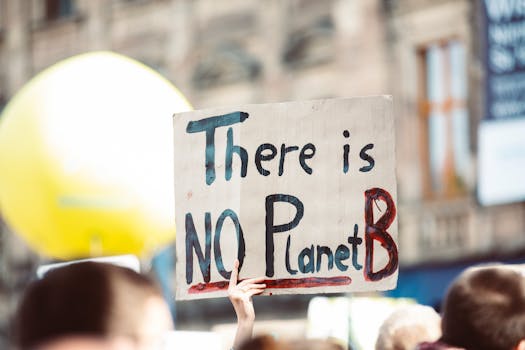
Climate Change Impacts and Environmental News Coverage
Introduction to Climate Change
Climate change is one of the most pressing issues of our time, with far-reaching consequences for our planet and its inhabitants. The scientific community agrees that human activities, such as burning fossil fuels and deforestation, are releasing large amounts of greenhouse gases, including carbon dioxide and methane, into the atmosphere, leading to a global average temperature increase of over 1°C since the late 19th century.
Climate change impacts are widespread and varied, ranging from more frequent and severe weather events, such as hurricanes, droughts, and wildfires, to rising sea levels, melting glaciers, and altered ecosystems. The consequences of climate change are not only environmental but also have significant social and economic implications, including loss of biodiversity, decreased crop yields, and negative impacts on human health and well-being.
Environmental News Coverage
Environmental news coverage plays a critical role in raising awareness about climate change and its impacts. The media has the power to shape public opinion, influence policy decisions, and hold those in power accountable for their actions. However, the quality and accuracy of environmental news coverage can vary greatly, and it’s essential to rely on credible sources of information.
Some of the most significant environmental news stories in recent years include the IPCC’s landmark report on global warming, the Paris Agreement, and the growing movement of climate activism, led by individuals such as Greta Thunberg. These stories have helped to raise awareness about the urgent need for climate action and have put pressure on governments and corporations to take action.
Impact of Climate Change on Different Regions
Climate change is having a disproportionate impact on different regions around the world. Low-lying coastal areas, such as Bangladesh and the Maldives, are experiencing more frequent flooding and saltwater intrusion, while drought-prone regions, such as Africa and Australia, are facing severe water shortages.
The Arctic is warming at a rate twice as fast as the global average, with significant implications for indigenous communities, wildlife, and the entire ecosystem. In contrast, regions with high levels of air pollution, such as China and India, are experiencing severe health impacts, including respiratory problems and premature death.
What Can Be Done to Address Climate Change
Addressing climate change requires a multi-faceted approach that involves individuals, communities, organizations, and governments. Some of the most effective ways to reduce greenhouse gas emissions and mitigate the impacts of climate change include transitioning to renewable energy sources, increasing energy efficiency, and protecting natural carbon sinks, such as forests and wetlands.
Individuals can make a difference by making conscious choices, such as reducing meat consumption, using public transportation, and conserving water. Governments and corporations can also play a critical role by implementing policies and practices that prioritize sustainability and reduce emissions.
Conclusion
In conclusion, climate change is a pressing global issue that requires immediate attention and action. Environmental news coverage plays a vital role in raising awareness about climate change and its impacts, and it’s essential to rely on credible sources of information. By working together and taking collective action, we can reduce greenhouse gas emissions, mitigate the impacts of climate change, and create a more sustainable future for all.





